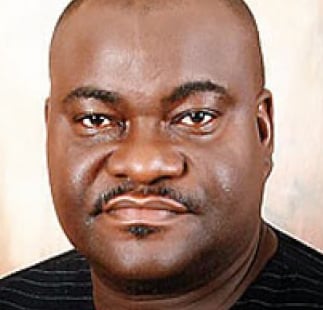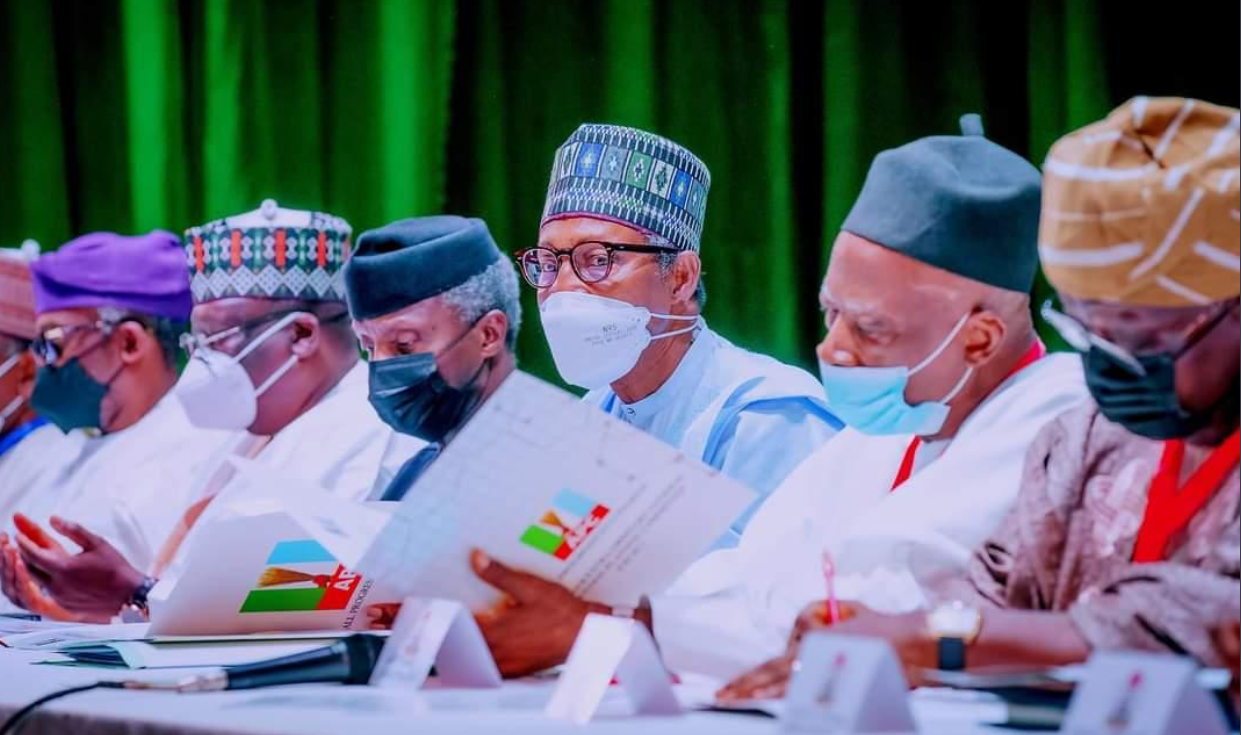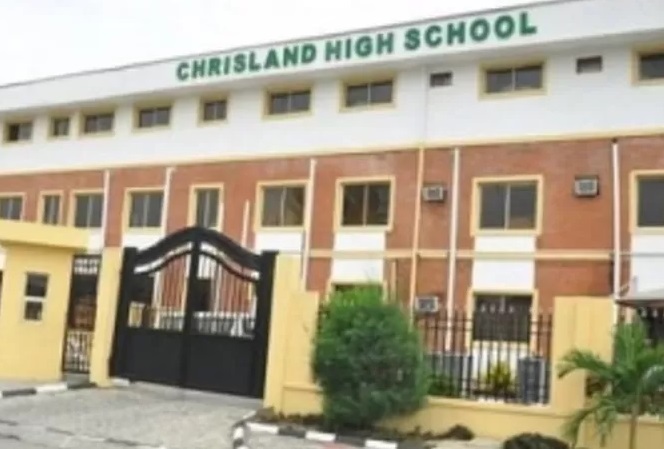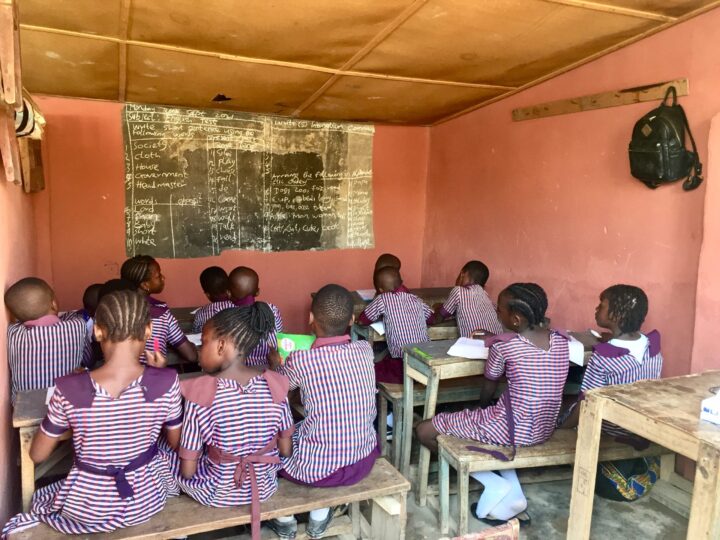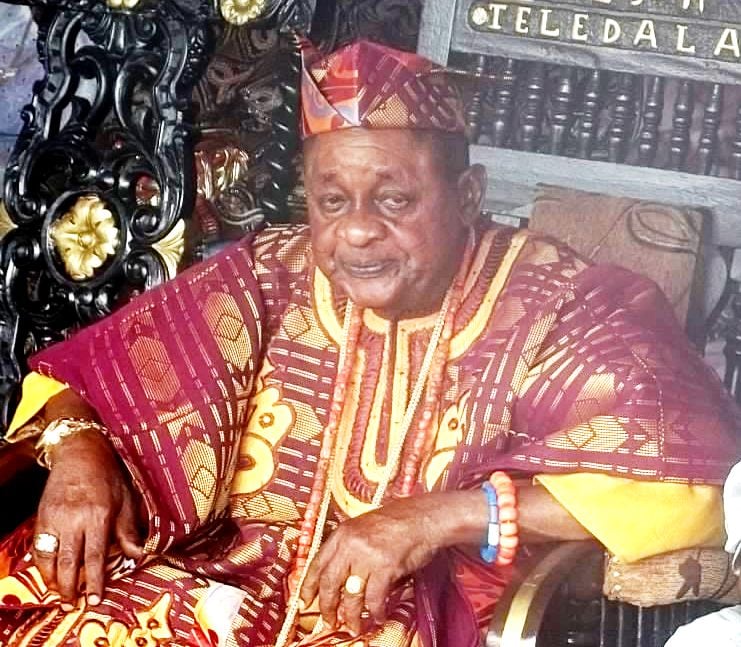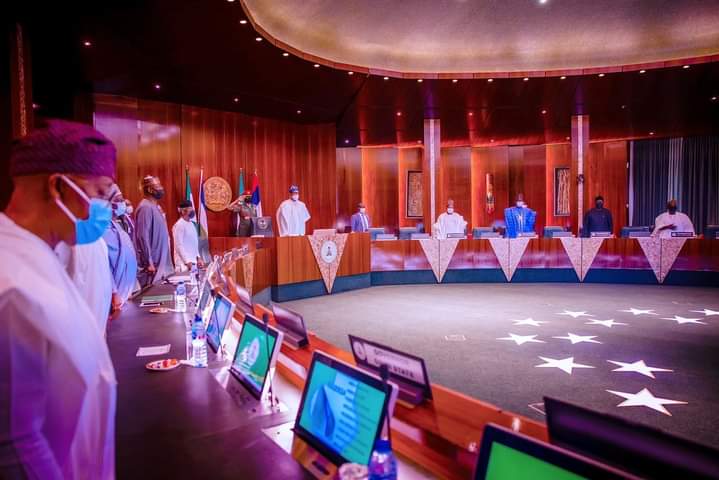That allusions, references and reminiscences are always, ever made to the music of the maverick Nigerian Afrobeat musician, Fela Anikulapo Kuti, speaks to the immutability, even immortality of his work. Fela was in eternal battles with successive Nigerian governments, tirelessly speaking the truth to them, even at the risk of his life. Trevor Schoonmaker, in a 2004 critique of Fela’s work, notes that he “created Afrobeat, an infectious mix of American funk and jazz, with traditional Yoruba and highlife music and used it to rail against corrupt Nigerian governments”. Fela’s notable, radical compositions include: ‘Authority Stealing’, ‘Army Arrangement’, ‘Coffin for Head of State’, ‘Beast of No Nation’ and ‘ITT’.
Were Fela still with us today, the news from the national executive committee (NEC) meeting of the ruling All Progressives Congress (APC) held Wednesday, April 20, 2022, would most probably have elicited a replay of his 1977 hit, ‘Sorrow, Tears and Blood’ (STB). Yes, if Nigerians were ever in doubt that the political party which has administered their country since May 29, 2015, was through and through an agglomeration of marauders and buccaneers, committed to their continuing pauperisation and political annihilation, the events of Wednesday, April 20, 2022, should be instructive. That NEC meeting hosted by Adamu Abdullahi, chairman of the party, rolled out exorbitantly prohibitive, brazenly anti-people fees for expression of interest and nomination forms, for prospective seekers of political offices in the 2023 general elections.
Abdullahi, by the way, was recently installed in this position under circumstances characterised by glaring coercive consensus. All his co-contestants for the position were compelled in APC’s characteristic neck-on-the-chopping-block democracy, to attest to a pre-written letter, withdrawing their candidature. This has become typical of the operations manual of the APC. The NEC meeting was attended by the party’s big wigs, including Muhammadu Buhari, Nigeria’s president, and Yemi Osinbajo, his deputy who is aspiring alongside a dozen other contestants, to succeed Buhari, among other leaders of the party.
Aspirants to the office of the president are to pay the sum of N100 million for their nomination forms while Nigerians aspiring for the gubernatorial ticket of the party will be requested to pay half of the sum required of presidential aspirants; N50 million in their own case. Party members questing for the senatorial tickets of the APC will remit N20 million to the coffers of the party, while those desirous of seats in the lower parliament are expected to pay the sum of N10 million. Those who desire to fly the party’s flag in the state assembly elections will be requested to pay N2 million.
Advertisement
On Friday, March 18, 2022, the opposition Peoples’ Democratic Party (PDP) rolled out the subscription fees for all levels of aspirants to various elective offices. And the window for the sale of the forms was kept open for over a month, closing Friday, April 22. Whereas prospective presidential candidates were required to pay N40 million for their expression of interest and nomination forms, aspiring governors were levied N21 million. Prospective senators and house of representatives members were requested to subscribe with N3.5 million and N2.5 million respectively. Aspirants into the various state constituencies at the state level were taxed N600,000 only.
Interestingly, the four-month-old national leadership of the PDP has for the first time in a long while, made public the aggregate sums realised from the sale of forms in the current politicking cycle. Some preceding leaderships of the party were notorious for opacity and lack of accountability in their record-keeping and operations. The PDP has indeed been the butt of taunts and derision by the APC for the non-completion of its purpose-conceived national headquarters for which an appeal fund was launched in the past and sumptuous sums realised without a revisit of the project. The Iyorchia Ayu-led NEC of the party in a rare and uncommon display of transparency, however, recently announced that monies in excess of a whopping N9 billion have thus far been realised from the sale of forms.
The Social Democratic Party (SDP), which is positioning itself as a possible fallback for potential elective office aspirants, has equally set the fees for its expression of interest and nomination forms en route to the 2023 polls. Presidential nomination documents are obtainable at N35 million, governorship aspirants are to pay N16 million, and senatorial contenders will pay N3 million. Contestants for the lower national parliament will pick up their forms for N1.7 million, while prospective aspirants for state assembly seats are to pay N500,000 only.
Back in December 2014, a few months before the general elections of 2015, the APC set its presidential nomination forms at N27 million. Buhari; Atiku Abubakar, Nigeria’s enigmatic former vice president; Rabiu Musa Kwankwaso, a two-term governor of Kano state; Rochas Okorocha, also a two-term governor in Imo state and Sam Nda-Isaiah (may his soul rest in peace), a newspaper publisher, were contenders for that ticket. The cost of the forms was perceived as too expensive for Buhari at the time. He had built a public profile over time, of a modest, austere and frugal personality who could possibly not muster the resources for such an “expensive” ticket. His media managers threw a spin around the subject then, proffering that Buhari actually obtained a bank loan to pay for the forms! How very ingenious!
Advertisement
In September 2018, a phoney “National Consolidation Ambassadors Network,” (NCAN), led by one Sanusi Musa, procured the presidential expression of interest and nomination forms for N45 million, ahead of Buhari’s second term election the following year. The group advanced that it raised the sum from contributions polled from supporters and admirers of the president. The gesture they said, was “in appreciation of Buhari’s achievements since he assumed office”. Buhari was subsequently adopted as the sole aspirant and candidate, by consensus, by his party.
Buhari postured like a “born again” democrat when Nigerians finally gave him a chance as their overlord in 2015, after three earlier failed attempts. He was tearful when he addressed his supporters after his third electoral fiasco in 2011, swearing he would never seek the presidency anymore. His eventual ascent to the position, fuelled hope, promise and optimism in the polity. The pseudo- talakawa facade of his public portraiture engendered palpable expectations. This was accentuated by the tepid testimonial of his predecessor, Goodluck Ebele Jonathan. Nigeria’s long-expected messiah and liberator had come, at last, it seemed.
And exactly what has been the performance evaluation report of the Buhari-led APC administration seven years down the line? What has informed its subsisting puffiness, which in turn has fuelled the 300% hike in the cost of application forms into various political offices, between 2014 and the present? How well has the nation’s incumbent leadership fulfilled its electoral promises and pledges, within its constitutionally allowed two terms of four years, thus far? How well have the lives and well-being of the average Nigerian been positively impacted by this government?
A peek into the balance sheet of the APC reveals bottomless deficits and lacunas which stand in total contrast to its highfalutin pre-election promises of 2015. The security situation across the country has become a hydra-headed ogre. Since the pre-2015 Boko Haram insurgency in the nation’s north-east, every geopolitical zone in the country is contending with some security challenge or the other. Banditry and kidnapping have virtually overrun the north-west, spilling into parts of the north-central. In the course of a recent official visit to Sokoto state, Buhari himself confessed he didn’t know the profundity of the security challenges of the zone.
Advertisement
The vagrants in emboldened ruthlessness, recently attacked a commuter train in motion, within the geographical space of Kaduna state, killing many innocent travellers, and abducting several others, in expectation of ransoms by families and the government. Herdsmen have serially plodded carefree, through farmlands in the north-central, fuelling bloody confrontations with farmers. The international community was alarmed at a live coverage by the US-based Cable Network News (CNN) in early 2019, of the mass internment of over 70 victims of herdsmen’s belligerence, in Benue state, underscoring the herdsmen’s menace.
Road travel has become a mortally dangerous venture across the country, no thanks to the blossoming kidnapping industry in the land. In bold-faced derision of the phenomenally lax, maybe nonexistent security apparatus in the country, bandits brazenly mount sentry on our so-called highways and expressway, pleasurably harvesting hapless victims from their vehicles. Some are literally executed to the crimson delight of the perverts, women get raped, and others get dragged through the thickets of labyrinthine forests. Hitherto unheard ritualistic practices, bordering on the dissection of innocent victims and harvesting of vital human organs, have become the vogue in a depressing milieu, which has accentuated a get-rich-quick desire among sections of the people.
Terror also reigns in parts of the country’s south-east, where hapless dignitaries have been targeted and killed, mafia-style, on the streets of Igboland. Outlawed outfits like the Indigenous Peoples of Biafra, (IPOB), the Eastern Security Network, (ESN), and a host of faceless groups and gunmen, have made it a pastime to spring surprise attacks on law-abiding citizens in communities. Homes of notable Igbo leaders have been serially set ablaze in inexplicable mindedness. Security personnel and outposts are also targets of these ruinous sub-humans. Cannibalism has been reported in the enclaves of some murderous gangs, stormed by intelligence and security personnel. Significantly, all of these are happening under the nostrils of a president who was once upon a time an army general.
We have in place a government which swore, in 2015, to arrest the floundering electricity situation within six months. It has been the shameless job of the same regime in recent weeks, however, to announce the serial collapse of the nation’s electricity grid. The nation today in the main, runs on alternate power sources, mostly oiled by diesel fuel. The price of this product, used to power diesel generators, recently skyrocketed by 150% from the previous rate of N340 per litre, to well over N700 for the same quantity. The Nigerian Bureau of Statistics (NBS) a few days back, announced an 83% increment in the price of cooking gas. A petrol scarcity, triggered by the importation of adulterated quantities of the fuel, has only begun to abate after several weeks of winding queues on the streets of the nation’s cities and night vigils by our people in fuel stations. The naira has continued its free cascade all through the Buhari years, exchanging for nearly N600 to one US dollar in recent days. Inflationary trends are sky-high, flattening the erstwhile haughtiness of presumptuous wads and bales of naira notes, in the unsmiling marketplace.
Advertisement
APC’s ongoing auctioneering of its expression of interest and nomination forms, its imposition of treacherous and intolerable rates on the subscription forms for intending aspirants, is a pertinent reminder of the traditional Yoruba song: “Bamu, bamu la yo/Bamu ba la yo/Awa o mo pe ebi n’pa enikankan/Bamu bamu la yo“. This translates as: “We’ve feted ourselves and had our fill. We are unaware that anyone is famished”. We have emplaced leaders who have not only ravaged our commonwealth, they have literally erected barricades to the desires and ambitions of the mass of the people. Let him stand up to be recognised that public officer, including the president, whose publicly stated remuneration can fund the recently enunciated tariffs of the APC expression of interest and nomination forms. It has been suggested that the president’s salary for four years is N57 million. How many private aspirants to the nation’s top job, can aggregate twice this sum, in the current economy?
Unconsciously, the APC has only formally issued an evaluation on itself, about the magnitude of the degeneration of the economy under its watch. Simply put, the party certifies that minimum inflation of 300% has been experienced by the economy in the last seven years, if its presidential nomination forms have quadrupled from N27 million in 2015, to N100 million in 2022. Yes, the party has just told Nigerians, that ascension to elective office in Nigeria is the exclusive preserve of the nouveau riche. Nigerians have also been taught a new trick; to cultivate a grabbist appetite, a desire for voluptuous consumptiveness, whenever they find themselves in public office. It behoves Nigerians to choose to continue the follow follow behind the special purpose vehicle (SPV) in which its present overlords rose to power, which has inflicted unfathomable, multidimensional pain, discomfort and agony on them. The onus is on them to embrace an alternative vessel which will assuage their angst, anger and agonies, post-2023.
Advertisement
Olusunle, PhD, poet, journalist, author and scholar, is a Member of the Nigerian Guild of Editors, (NGE)
Advertisement
Views expressed by contributors are strictly personal and not of TheCable.
